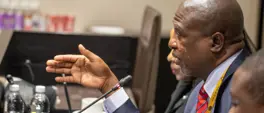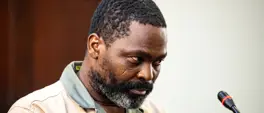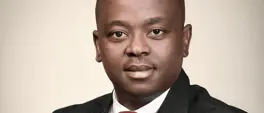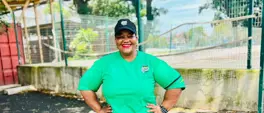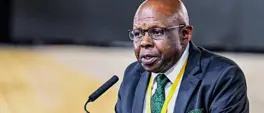Meagan Adonis relishing challenges and joys of being a blind mom
Simangele Legodi
24 January 2024 | 12:30With two children, 31-year-old Meagan Adonis is relishing every moment of motherhood. She gained valuable experience from her first child and is now raising her kids with greater confidence.
JOHANNESBURG - Despite being completely blind due to a build-up of pressure on her head from a medical ailment, a supermom can easily change her newborn's diapers with no difficulty at all.
With two children, 31-year-old Meagan Adonis is relishing every moment of motherhood. She gained valuable experience from her first child and is now raising her kids with greater confidence.
It is estimated that 360,000 persons, or 0.75% of the population, are blind in South Africa and according to the World Health Organization (WHO), these individuals not only confront obstacles to their lives and well-being but also to their economic possibilities, with unrealised potential having an impact on the nation's overall growth.
The Blind Goddess, as she refers to herself, has at least 126.5k followers on TikTok. She chronicles her daily routine with her bundle of joy, including feeding, cuddling, and changing diapers.
@meaganadonis Description: Blind mommy feeding baby sunshine some yogurt. Navigating through our growing journey. Remember to be patient and kind to yourself. #disabilityawarenessmonth #SAMA28 #fyp #bondingtime #mydisabiltyisnotainability #momswithdisabilities #blindmom #defyingtheodds ♬ Asian style warm tropical house - Future Oriented Triad
Eyewitness News spoke Meagan Adonis to learn more about her life.
Talk me through your vision loss - how it happened, and when.
I experienced severe and debilitating headaches and black out, I was then referred to a neurologist by the family GP I was told that I needed to go for several tests before providing a diagnosis. I was informed that I had to wait to get admitted before tests could be carried out. Due to administrative oversight and negligence at the hospital I could not get admitted on Time, I had waited for months and while waiting I was not aware my eyesight condition was deteriorating. one day I woke up blind and I was rushed to the emergency room and had to undergo several tests to identify what was causing my deteriorating eyesight.
It was only after multiple tests that I was later diagnosed with idiopathic intercranial hypertension. I was then told that this vision loss was irreversible it had affected my optic nerves leaving permanent optic nerve damage.
This was one of the scariest times in my life.
How did you first react when you lost your vision?
Upon realizing the permanence of my vision loss, I experienced a panic attack and fell into a deep depression. Anxiety attacks took a toll emotionally, physically, and spiritually. Adapting to this new reality, I thought I had to alter my aspirations to suit my conditions, however when I realised my disability is not an Inability, I overcame the fear of being labelled disabled and embarrassed my blindness as it added to my uniqueness and abilities to overcome adversity.
How did becoming blind impact your social life?
In the beginning Vision loss profoundly affected my social life, leading to increased isolation and social anxiety. Some friends distanced themselves, and the fear of judgment as a blind person intensified my isolation. Support from loved ones, particularly my mother, sister, and husband, helped me regain confidence and learn the importance of self-acceptance. Working on myself was important, then I started socialising and engaging with other disabled people then I had to learn to participate in social activities without sight. Overtime I developed into a social butterfly. I was then confident enough to use my social spaces and platforms to educate the society on disability.
You use social media as a platform to let people into your life as a mother who is visually impaired. What was the purpose of doing this?
Social media became a tool for connection and advocacy. It allowed me to sensitize and bring awareness to disability, inspiring others facing similar challenges. I aim to accelerate and promote economic and social equality, justice and advance disability rights and advocacy.
Through my platforms, I connected with the global community, destigmatized disability, and engaged in social activism as a disability rights activist. I also use the social media platform to destigmatize the notion of parents with disabilities not being able to show love and care, this changes the narrative of having not having the ability to parent.
I also use this platform to educate others on the innovative ways in which a mother with a disability would engage in her day-to-day activities.
What would you say is the most challenging aspect of being a mother who is visually impaired?
Motherhood, experienced after losing my sight, brought challenges and joys. Raising my sons, Jordan and Jaden, became a journey of learning and adaptation. The minor challenges are first of all learning to be patient with myself, which has required intentional and consistent efforts, amongst many others. Other challenges would be not being able to see their frowns, and smiles, not being able to do things using my sight.
Also having to teach myself to do things differently from the norm, for instance I had to figure out how to feed, change and teach my children in an innovative way. Their inspiration motivated me to be the best version and continue to challenge myself. Technology also aided my interaction with them, leading me to establish an IT company focusing on technology for vulnerable communities.
In your opinion, is there enough support for visually impaired people in South Africa, especially new mothers tasked with looking after themselves and their children? If not, what can be done to better help them?
The support for persons with disabilities and mothers with disability is often inaccessible. Organizations like "Disabled Women Living with Dignity" aim to empower mothers and women with disabilities despite limited resources. Collaboration with various entities, including the government, is crucial to design intervention programs addressing the unique needs of parents with disabilities. Social workers, healthcare providers, and media campaigns should contribute to destigmatizing and supporting parents with disabilities, ensuring economic opportunities and community education programs are made available.
Through my advocacy and social media platforms and other initiatives that I am involved in, I am to create awareness and visibility and offer support to parents with disabilities and educate society.
Get the whole picture 💡
Take a look at the topic timeline for all related articles.
Trending News
More in Local

19 January 2026 10:35
Maduro's capture proof US willing to violate international law to access foreign mineral resources: NUMSA

19 January 2026 10:29
Probe launched into allegations Ekurhuleni Mayor Nkosindiphile Xhakaza is linked to two high-profile killings
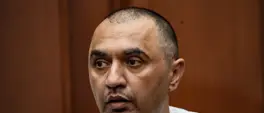
19 January 2026 10:20
Modack case postponed after defence lawyer falls ill



